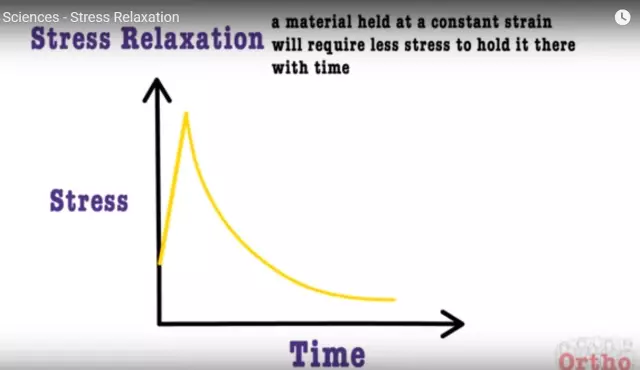- Author Rachel Wainwright wainwright@abchealthonline.com.
- Public 2023-12-15 07:39.
- Last modified 2025-11-02 20:14.
6 principles of effective relaxation
The life of a modern person is oversaturated with many things to do and impressions. During the day, he seeks to do as much as possible: to fulfill the maximum of production duties, to carry out the necessary negotiations, to go to the store, to communicate with loved ones. Time is chronically lacking, and a person solves everyday tasks, denying himself the rest. This approach cannot but affect health. Most people of working age experience constant fatigue, which over the years leads to the development of chronic diseases. Today we will talk about how to learn how to organize effective rest, sufficient to protect the body from the harm that the rapid pace of life does to health.

Source: depositphotos.com
We do not strive to work until exhaustion
Each of us is periodically faced with a situation when the work is not finished, but the strength is gone. Usually we try to convince ourselves that we need to have a little patience and bring the matter to the end. This decision is wrong. We start to rush, make mistakes; the final stage of the work turns out to be crumpled, and its result leaves much to be desired.
The trouble is that fatigue builds up, so you can't work to the point of exhaustion. It is much more correct to take a break and recuperate than to complete the task, overpowering yourself, rushing and making mistakes.

Source: depositphotos.com
Change your occupation
It really helps. Moving from physical work to mental work, we allow tired muscles to relax and restore their strength. Moving from intellectual workloads to mechanical work, we provide the brain with the breaks it needs and load a variety of information to distract and relieve stress.
Unfortunately, not every position allows for frequent switching of this kind, but this should be strived for. Otherwise, continuous activity of the same type will inevitably lead to a decrease in working capacity and a deterioration in the quality of work.

Source: depositphotos.com
We observe the hygiene of night sleep
Everyone knows that a person should sleep at least 7-8 hours a day. However, a lot also depends on the quality of the night's rest. To fully regain strength, you need:
- fall asleep quickly. This is not always possible, since daytime impressions prevent the brain from relaxing. Walking in the fresh air, a warm shower, listening to quiet, unobtrusive music, reading fiction help relieve excessive excitement;
- relax in a well-ventilated, quiet, darkened room. It is useful to keep indoor plants in the bedroom that improve the composition of the air (lavender, chlorophytum, Kalanchoe, spathiphyllum, etc.), or light an aroma lamp with essential oils of laurel, bergamot, sage, vanilla, coniferous or citrus plants before bed;
- sleep in a comfortable bed;
- use bedding made from natural fabrics;
- wake up slowly, gradually prepare the body for a new day.

Source: depositphotos.com
We take breaks during working hours
For the first time feeling tired in the midst of the working day, many begin to think that they are not all right with their health. It is not so: labor activity has quite regular periods of ups and downs, and from time to time it is normal to feel the need for rest. The problem is that most people ignore these sensations, continuing to work through force. There are several reasons for this behavior: some are afraid not to have time to do all the planned work, others do not dare to take even a short break, fearing a negative reaction from their superiors or colleagues. In fact, such fears are meaningless. Increasing fatigue has a much worse impact on the results of the production process than the loss of time for a short rest. A competent manager knows about this and does not seek to force employees to work all day without a break. Taking short breaks from time to time is not only possible, but necessary.
If your work involves using a computer, 10 minutes of each working hour should be taken away from the monitor. This will help maintain your eyesight and focus throughout the day. Any work associated with the need to maintain the same posture for a long time should be interrupted once every 1.5-2 hours with a small physical warm-up. Breathing exercises and rubbing the face and hands with cool water very well relieve fatigue. It is important that work breaks are regular and occur at the same time every day. Then the body will get used to increased activity during working periods.
At lunchtime, you should try not only to eat, but also to recuperate. "Progressive" employers equip special rooms for employees' recreation. There you can calmly read, chat and even take a nap. If your organization does not yet have such a room, you should not return to the workplace immediately after eating - it is better to take a walk and fully use the lunch break for rest.

Source: depositphotos.com
We organize a weekend getaway
On weekends, they usually plan those things that cannot be done on weekdays: big cleaning, large-scale purchases. Of course, you can't do without this, but you should not devote all the time to such activities intended to distract from work.
It is important to reserve one of the days off in advance for communicating with children, going out to nature, meeting with family and friends, cultural recreation. Choose only those activities that you like: by agreeing to go somewhere for the company, you doom yourself to several hours of boredom and subsequent regrets about the mediocre time spent. A full recovery of strength is possible only when a person enjoys rest.

Source: depositphotos.com
Planning a vacation
Many people look forward to vacation, but when it ends they feel disappointed and return to work with a bad mood and even ruined health. This is due to the inability to plan a long-term vacation, devotion to activities that do not bring either benefit or satisfaction. For a vacation to really help you recover and build up strength for further work, you must:
- abandon large-scale economic plans, or at least not spend all the time on household chores. If you need to make repairs, divide your vacation into two or three parts and spend only one of them on caring for the apartment;
- choose a vacation that suits your tastes and temperament. It is important to understand that staying in a fashionable ski resort is unlikely to benefit anyone who prefers to take care of the garden in the country, and a wonderful beach vacation will only tire those who like educational tourism and sightseeing cultural attractions;
- when going on a trip, think over all the activities in advance, so as not to waste time and energy in vain. Not everyone knows how to organize a vacation on their own. In this case, it is better to contact a travel agency that will take care of everyday life and entertainment;
- plan your vacation so that you return from the trip at least 2-3 days before going to work. Too abrupt changes in climate and life circumstances can negatively affect health, mood and ability to work.

Source: depositphotos.com
Working for wear and tear and neglecting health are not at all virtues. A person is obliged to take care of his health, and for this one must be able to recuperate. Only by observing the work schedule and effectively resting, you can ensure yourself good health, active longevity, successful work, a varied and fulfilling life.
YouTube video related to the article:

Maria Kulkes Medical journalist About the author
Education: First Moscow State Medical University named after I. M. Sechenov, specialty "General Medicine".
Found a mistake in the text? Select it and press Ctrl + Enter.






